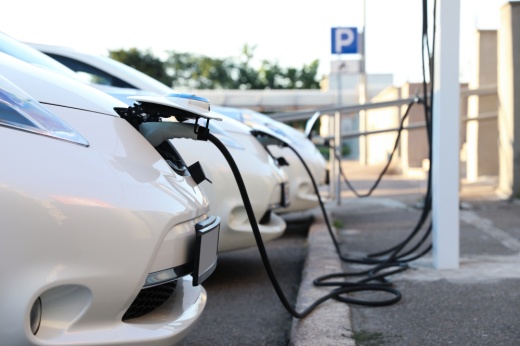President Joe Biden signed the bill into law Aug. 16. Houston-area Congressional representatives who voted for the bill include Rep. Sheila Jackson Lee, D-Houston, who serves the Heights; while those opposing include Rep. Dan Crenshaw, R-Houston, covering Spring. Both Texas senators, Ted Cruz and John Cornyn, opposed the bill. According to a White House fact sheet, improvements targeted at Texas include the coverage of 50%-100% of costs for lower-income families to install newer, cleaner appliances; a $66.5 billion investment in clean power generation and job creation; and tax credit incentives for electricity co-op providers, which serve 2.5 million customers in the state.
Environmental protection opportunities
Jennifer Hadayia, director of the Houston advocacy nonprofit Air Alliance Houston, said the Houston area would be “ground zero” for environmental protection opportunities in the law.
“The Inflation Reduction Act has the potential for massive public health investments in Houston,” Hadayia said. “It will take some time to see what that direct local impact will be. But big picture overarching, we are ground zero for these [environmental] issues.”
Also included in the law are incentives for transitioning to electric vehicles through the construction of charging stations and tax credits for electric vehicle purchases. Luke Metzger, the executive director for nonprofit Environment Texas, said the bill’s electrification provisions would synergize with local efforts to transition to electric vehicles, such as the nonprofit Evolve Houston’s roadmap.
“Under the leadership of Mayor [Sylvester] Turner and some of his predecessors, Houston has been working to transition towards clean energy,” Metzger said. “And this bill has the potential for some pretty significant investment in changing course on those issues.”
The Houston-Galveston Area Council—a metropolitan planning organization responsible for coordinating fund distribution to local governments in the Houston area—said in a spokesperson’s response to Community Impact Newspaper it was too soon to comment on a timeline of impact but the council was “excited” for the possibilities of the bill.
“H-GAC is still in the process of learning more about all the provisions of the recently-passed Inflation Reduction Act, new funding opportunities and how it might benefit existing programs and services we provide for the region,” H-GAC’s statement said. “We’re excited about the possibilities and opportunities this new legislation will bring to help improve the lives of residents and help our region continue growing strongly.”
Electrifying Houston
As of July 2022, there were over 19,000 electric vehicles registered in Harris County and over 13,000 in the city of Houston, according to data from Dallas-Fort Worth Clean Cities and the North Central Texas Council of Governments. The IRA’s provisions targeting electric vehicles include $7,500 in tax credits for new EVs and $4,000 in credits for used vehicles, according to the White House. The bill also includes a credit for up to 30% of costs for the purchase and installation of EV chargers.
According to Evolve Houston’s March 2022 RISE Houston report, there are 1,200 public chargers currently active in the Houston area. However, the projected growth of EVs—Evolve Houston targets having 30% of all new car sales going electric by 2030—could outgrow the existing infrastructure.
Metzger said tying benefits to tax credits allowed for immediate relief, pointing to the results of previous EV incentives linked to credits. The National Renewable Energy Laboratory, an arm of the U.S. Department of Energy, said motorists driving EVs can save up to $14,500 over 15 years with an average lifetime savings of $3,000-$10,500.
“For example, here in Texas, you know, 20 years ago, less than 1% of our electricity came from renewable sources,” Metzger said. “We're now well above 25%, and tax credits have been a huge component of that.”
The Texas Department of Transportation submitted its EV infrastructure plan to the federal government on Aug. 1. The plan is required through the federal National Electric Vehicle Infrastructure Formula Program, and targets supporting 1 million electric vehicles in Texas by 2028.
Environmental justice, emissions
The bill includes $3 billion in specifically named block grants for environmental justice—targeting communities that have received a disproportionate share of negative environmental effects such as pollution. Hadayia said the inclusion of environmental justice was “pleasing to see.”
“[Naming environmental justice] is saying we understand the disproportionate impact on black, brown and lower-income communities historically, for decades, in terms of environmental exposure, and we want to invest in those communities to right those wrongs,” Hadayia said.
Metzger added that opportunities for environmental justice funding would be directly available to communities and nonprofits, allowing them to streamline the investment process.
Hadayia said one specific target for funding would be the increased placement of community monitors for air pollution. The Texas Commission on Environmental Quality maintains nine gas chromatography monitors in Harris County, but Air Alliance Houston has its own network of over 30 monitors since 2014 in the Houston area, she said.
“Many times organizations like ours are filling in gaps that we believe should be already addressed by our state regulatory agency, which is tasked with knowing and tracking what is in the air,” Hadayia said. “So we were pleased to see this large investment in air monitoring across the board.”
Other restorative programs include a reinstatement of the Superfund tax, which is estimated to raise $11 billion to clean up highly contaminated sites. According to the Environmental Protection Agency’s Superfund tracker, approximately 13 Houston-area sites are registered on the Superfund National Priorities List, including the Conroe Creosoting Inc. site, which used toxic wood-treating chemicals.
The federal Department of Justice opened an environmental investigation into the city of Houston on July 22 regarding illegal dumping and a potential violation of Title VI of the 1964 Civil Rights Act. However, Metzger said he believes the investigation is unlikely to impact community eligibility for grants and other funding.
Illana Williams contributed to this report.





